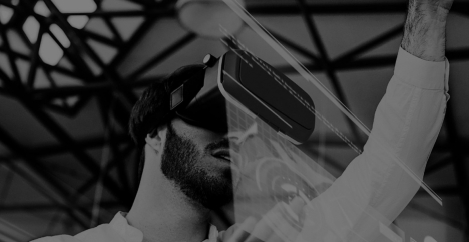December 17, 2019
Self-driving cars will be most transformative future tech, bosses say. Techies disagree
 Self-driving cars are set to have a significant impact on society and change our future the most over the next 20 years, according to research from CWJobs. Working in collaboration with “futurologist” Melissa Sterry, the report (registration) surveyed over 2,000 UK business decision makers and IT workers to determine the technological inventions with the greatest impact on society since 2000 and what’s to come in the next 20 years.
Self-driving cars are set to have a significant impact on society and change our future the most over the next 20 years, according to research from CWJobs. Working in collaboration with “futurologist” Melissa Sterry, the report (registration) surveyed over 2,000 UK business decision makers and IT workers to determine the technological inventions with the greatest impact on society since 2000 and what’s to come in the next 20 years.
Just over a third (34 percent) of business decision makers stated they expect self-driving cars to be the innovation that will change our future the most in the next 20 years, with delivery drones (30 percent) and 5G (24 percent) also ranking highly. However, surveying its candidate database, CWJobs found IT workers disagree, with over 46 percent believing quantum computing will impact society the most, ahead of self-driving cars (41 percent) and instant language translator earbuds (33 percent).
New roles
Working with tech every day, IT workers are perfectly placed to comment on the tech that’s had the biggest impact on society so far. The research revealed that over seven out of 10 workers (74 percent) thoroughly believe that the smartphone has been the most crucial invention over the past 20 years.
[perfectpullquote align=”right” bordertop=”false” cite=”” link=”” color=”” class=”” size=””]Seven out of 10 workers believe the smartphone has been the most crucial invention of the past 20 years[/perfectpullquote]
The research suggests that overall, people regard Bluetooth technology as the most underappreciated invention (36 percent), closely followed by the USB flash drive (31 percent). The most surprising innovation since 2000 for IT workers came in the form of social media (37 percent), AI voice assistants (34 percent) and 3D printing (30 percent).
Looking ahead to the next 20 years from a tech talent perspective, 42 percent of business decision makers believe that the “self-driving car mechanic” will be the new tech job role to emerge. Of the current roles available, cyber security engineers / analysts (35 percent) and AI / Machine learning designers, developers or engineers (35 percent) are expected to be the most important tech roles in the next two decades, ahead of software developers / engineers (26 percent) and mobile app developers (25 percent).
Interestingly, both business decision makers and IT workers, 68 percent and 71 percent respectively, believe that as significant advancements have occurred in areas like AI, blockchain and quantum computing, more people are developing the specialist tech skills needed to match the increased demand for these specific innovations.
“The world of tech stops for nobody and it’s set to accelerate even further over the next 20 years, impacting every part of our lives from consumers to businesses”, Melissa Sterry claims. “What’s interesting to see is the different directions business leaders and IT workers think the industry is heading in, perhaps influenced by their backgrounds and prevalence of tech in their roles. It’s clear though that both see tech as a firm staple of life moving forward, of which there should be no doubt.”
What’s clear from these findings is that the underlying technology we’re seeing emerging today, like AI and connectivity, is set to be the basis for the next 20 years of innovation. In order to take advantage, the UK needs to have the talent available to implement and use these technologies effectively.”
















